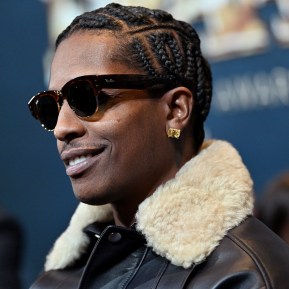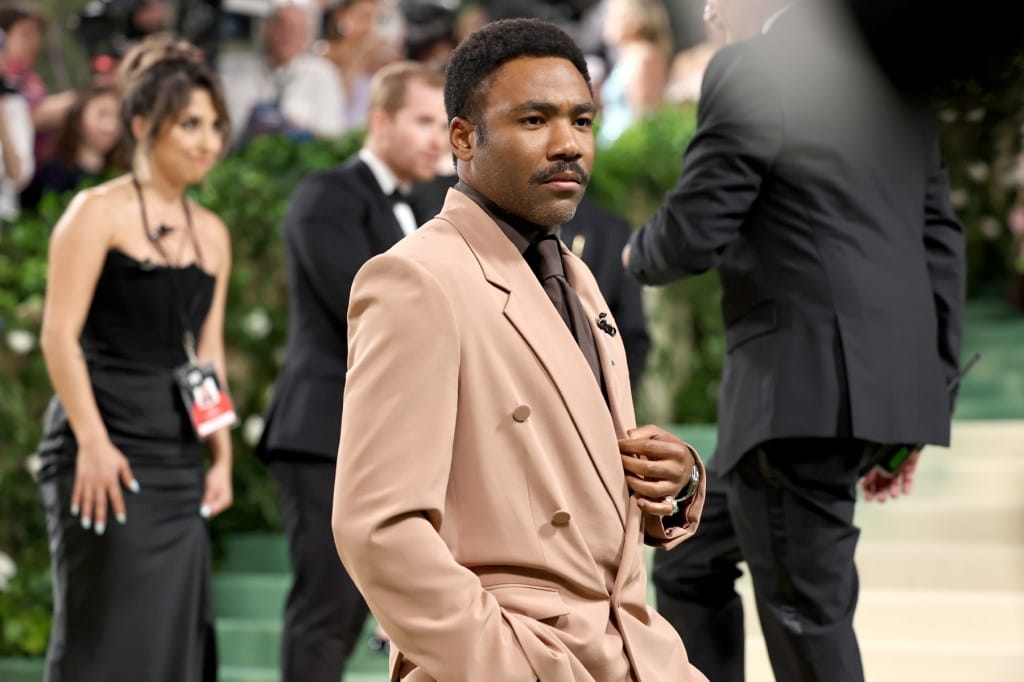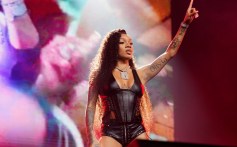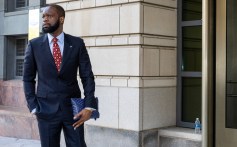genre rap
Trending on Billboard
UPDATE (Dec. 2): In a judgment entered Tuesday, Judge Cecilia M. Altonaga reduced Megan Thee Stallion‘s trial award from $75,000 to $59,000. The judge said Megan can’t get damages for defamation because the jury found Milagro Gramz to be a member of the media, and the rapper’s team did not send a pre-lawsuit notice required for libel claims against journalists.
Therefore, the judgment finds in Megan’s favor only on intentional infliction of emotional distress and promotion of an altered sexual depiction, two claims for which the jury awarded Megan a total of $59,000. Judge Altonaga struck the additional $16,000 that Megan won for defamation.
Megan’s lawyers will contest the reduction in post-judgment motions. They’ll also seek at that time to add legal fees onto the damages amount.
PREVIOUSLY: A jury has held celebrity gossip blogger Milagro Gramz liable for defaming Megan Thee Stallion and reposting a deepfake pornographic video of the rapper in the wake of her shooting by Tory Lanez.
A federal jury in Miami determined in a Monday (Dec. 1) verdict, reviewed by Billboard, that Gramz harmed Megan with her social media antics and awarded $75,000 in damages. That number will likely grow later on, since Megan won on a Florida law with a fee-shifting provision that could require Gramz to reimburse some of her hefty legal bills from the elite firm Quinn Emanuel.
“We’re thankful for the jury’s commitment to reinforcing the importance of truth, accountability and responsible commentary on social media,” said one of Megan’s lawyers, Mari Henderson, later on Monday. “This verdict sends a clear message that spreading dangerous misinformation carries significant consequences.”
A lawyer for Gramz, Jeremy McLymont, said in a statement, “We remain proud of the defense we presented and of Ms. Cooper’s willingness to stand up for her voice.”
“Ms. Pete and her attorneys asked the jury to send a message to the community by awarding Ms. Pete with an astronomical amount of damages,” said McLymont. “Indeed, the jury rejected Ms. Pete’s request and refused to send any such message as shown by the nominal damages Ms. Pete recovered.”
Related
Megan’s lawyers argued during the weeklong trial that Gramz acted as Lanez’s “mouthpiece” to spread misinformation and tank her reputation. Lanez (Daystar Peterson) is serving a 10-year prison sentence after being convicted in 2022 of shooting Megan in the foot during a drunken argument following a pool party at Kylie Jenner’s house in the Hollywood Hills. He continues to maintain his innocence, though the conviction was recently upheld on appeal.
A loyal Lanez supporter, Gramz has for years used her social media presence to doubt the veracity of Megan’s account. Many of her posts about the shooting case have been outright false, such as her claims that Lanez’s gun supposedly went “missing.” Megan’s lawsuit also accused Gramz of violating a Florida law against “altered sexual depictions” by encouraging followers to watch a deepfake pornographic video of her.
Gramz denied being paid by Lanez and said her social media posts were First Amendment-protected journalism. The question of whether Gramz is a protected member of the media became a key issue during the trial. Jurors determined on Monday that she does have some media credentials, teeing up more post-trial litigation over whether the defamation verdict can stand.
Lanez himself was not a defendant or a witness in this trial. The Canadian rapper was supposed to give a videotaped deposition from prison, but was so uncooperative during the repeated questioning from Megan’s lawyers that he was held in contempt.
This story has been updated to include additional details on the verdict and statements from both sides.
Trending on Billboard
A$AP Rocky and Margaret Qualley star as a couple embarking on a new chapter together in Chanel’s latest short film.
Released Sunday (Nov. 30), the surreal three-minute clip, directed by French filmmaker Michel Gondry, opens with the rapper, 37, and actress, 31, waking up together in bed before Qualley rushes off to a New York City subway.
Rocky sneaks after her, sprinting through Manhattan streets and even swimming across a river — all in red silk pajamas — to reach her and propose in a romantically cinematic gesture. The silent visuals are set to music by Le Motel.
Explore
See latest videos, charts and news
The mesmerizing short serves as a teaser for Chanel’s Métiers d’Art 2026 show, set to debut Tuesday (Dec. 2) at 8 p.m. ET, with the full video releasing the same day.
A$AP Rocky, recently named Chanel’s newest ambassador, reflected on collaborating with Gondry, who is perhaps best known for directing Eternal Sunshine of the Spotless Mind, which earned him an Oscar for best original screenplay in 2005.
“All of my music videos that I direct derived some inspiration from one of his films. I plan on directing my own feature. I look up to people like him,” Rocky told Vanity Fair.
After posting a teaser of the short film on Instagram, fans flooded the comments with humorous reactions, many referencing the rapper’s partner Rihanna, with whom he shares three children.
“It takes a brave woman to get in bed with Rihanna’s husband,” one wrote. Another added, “Boutta send this to RiRi.”
Qualley, meanwhile, is married to music producer and Bleachers frontman Jack Antonoff. The couple tied the knot in August 2023 in a star-studded ceremony attended by Taylor Swift, Lana Del Rey, Channing Tatum, Zoë Kravitz and Cara Delevingne.
Watch Chanel’s short film, starring A$AP Rocky and Margaret Qualley, on Instagram below.
Trending on Billboard Jack White and Eminem’s first live collaboration is now streaming. Shortly after the Detroit music legends took the stage at Ford Field for the Lions–Packers Thanksgiving Day halftime show on Thursday (Nov. 27), their collaborative performance was released on all major streaming platforms. “Live at Ford Field’ Jack White III featuring @eminem […]

Trending on Billboard
It was no surprise that Jack White performed The White Stripes’ “Seven Nation Army,” a sporting anthem, during his halftime set on Thursday (Nov. 27) at the Detroit Lions’ annual Thanksgiving Day Classic at Ford Field.
The real surprise came with a guest appearance by fellow Detroit icon Eminem, who co-executive produced the event alongside his manager, Paul Rosenberg.
The superstar rapper, decked out in a hoodie and custom-made Lions jacket, electrified the sold-out crowd by joining White and his band halfway through their seven-minute set for a mashup of Em’s “Till I Collapse” with the White Stripes’ “Hello Operator,” a pairing that was sandwiched between White’s “That’s How I’m Feeling” and “Seven Nation Army.”
It was a first-ever onstage meeting between the two Detroit music standard bearers. It came in the wake of the White Stripes’ induction into the Rock and Roll Hall of Fame on Nov. 8, and also coincided with the 10th anniversary of the opening of White’s Third Man Records location in his hometown. Eminem was inducted into the Rock Hall in 2022.
White played a blue guitar for the occasion, while his rhythm section sported Lions attire. “I love you Detroit,” the rocker shouted as the performance came to a feedback-drenched conclusion. More than 400 Lions season ticket holders who volunteered to be part of the show rocked along in front of the stage.
Eminem and White — who each created special limited edition merchandise related to the game and halftime show — were well represented before the performance as well. The Ford Field PA blasted “Seven Nation Army” shortly before the Lions took the field, and White’s “Taking Me Back” during the time-out music in the first quarter. “Till I Collapse” was featured as hype music prior to kickoff.
The show marked the first event in a new three-year partnership between the Detroit Lions, Burbank-based Jesse Collins Entertainment — known for producing previous Super Bowl halftime shows — and Eminem and Paul Rosenberg. Eminem and Rosenberg also collaborated with the Collins organization on the June 2024 concert celebrating the opening of Michigan Central, which also featured a performance by White.
JCE executive VP Seth Dudowsky told Billboard that conversations about Eminem and Rosenberg joining the production team began near the start of the NFL season, and once on board White quickly became a focal point of the Thanksgiving halftime discussion.
“We talked about how do we put on a show that really represents the attributes and values of the city and are true to the Lions and true to what Eminem and Paul had established there,” Dudowsky said. “When you talk about those elements and those values, Jack White was a perfect artist to… represent rock ‘n’ roll and be on that stage and somebody who not only spans Detroit, but anybody who’s been in stadiums and at sports events has heard [‘Seven Nation Army’] at some point.”
The Lions also launched a new initiative with Feeding America with Thursday’s game.
Adding to the day’s hometown flavor was Grammy-winning gospel singer CeCe Winans, a Detroit native who flew in that morning from Nashville to perform the National Anthem.
“It’s an honor,” Winans told Billboard at Ford Field. “I grew up with seven brothers and a dad, so the Lions game was on every year. There were 10 of us so we couldn’t get all those tickets, so we watched on TV. To be able to be here to do the anthem is a lot of fun, and honor and amazing.”
The Lions game against NFC North division rival Green Bay Packers was the first of three NFL Thanksgiving Day games.
Trending on Billboard Donald Glover is opening up about a recent health scare that forced him to cancel his tour last year. At the time he described it as an “ailment,” but Glover said Saturday night (Nov. 22) at a performance that a doctor told him he’d had a stroke. Glover, who performs under the moniker Childish […]
Trending on Billboard
Rolling Loud has unveiled the full lineup for its 2026 Australia edition, confirming a heavyweight bill of U.S. rap acts alongside some of the country’s most prominent homegrown names.
Explore
See latest videos, charts and news
Rolling Loud Australia is set to take place across two cities in March: Sydney’s Centennial Park on March 7, and Melbourne’s Flemington Racecourse on March 8. The twin one-day events mark Rolling Loud’s first shows in Australia since 2019, and the first time the global hip-hop festival brand has expanded to a two-city format in the country.
Gunna will headline the two-city run, following Rolling Loud’s earlier confirmation that the rapper would anchor the event. Ken Carson joins him at top billing, extending the Opium-affiliated artist’s growing presence across the festival’s global footprint. Sexyy Red — previously announced — leads the second tier of performers.
The 2026 bill includes several major U.S. rap acts across its main stages. Sexyy Red, Tyga, Swae Lee, Lil Tjay, Ski Mask the Slump God, NLE Choppa, Quavo, Ian and rising rapper Osamason are among the international performers scheduled across the weekend. The lineup spans established touring names, TikTok-driven breakout acts and core Rolling Loud regulars who have been fixtures across the festival’s global editions.
In addition to the international programming, Rolling Loud Australia will feature a dedicated stage focusing on local artists from Australia and New Zealand. Acts announced for the regional platform include Hooligan Hefs, Youngn Lipz, Amarni, Day1, Lil Golo & Cult Shotta, 4ourttune and Jonny Chopps. While each city will include select local-only performers, the core lineup remains consistent across both dates.
Rolling Loud first debuted in Australia in 2019 with a one-day event at Sydney Olympic Park headlined by Future, Playboi Carti and Rae Sremmurd. That edition sold out quickly and became a key marker of the festival’s global expansion cycle. Its return in 2026 marks the brand’s first Australian event in seven years and the first time Rolling Loud has staged back-to-back shows in two Australian cities.
The announcement follows a period of continued international growth for the Miami-born festival, which recently added new editions across Europe, Asia and India. Rolling Loud India will take place later this month with a lineup headlined by Central Cee, Wiz Khalifa, Don Toliver and Karan Aujla.
Rolling Loud Australia 2026 will run in partnership with Primuse Entertainment as the local production partner. Further scheduling and site details are expected in the lead-up to the March events.
Trending on Billboard
GloRilla has defeated a lawsuit that accused her of stealing a social media personality’s viral catchphrase “all natural, no BBL” for her 2024 song “Never Find.”
The federal copyright case was filed this summer by Natalie Henderson, aka @slimdabodylast on Instagram, who claims she coined the catchphrase referencing “Brazilian butt lift” surgery. Henderson says GloRilla (Gloria Woods) stole the phrase for her lyric “All natural, no BBL/ Mad hoes go to hell” on “Never Find,” a bonus track off her debut album Glorious.
Related
GloRilla’s lawyers denied any infringement and argued that nobody can copyright a “cliched” expression like “all natural, no BBL.” But it doesn’t look like a court will have to decide these substantive questions; Judge Lance M. Africk dismissed Henderson’s lawsuit on Friday (Nov. 21) based on geographical technicalities.
The suit was brought in Henderson’s home state of Louisiana, but the judge ruled that wasn’t enough to establish jurisdiction over GloRilla, a Georgia resident, or the various label defendants also named in the lawsuit — California-based Universal Music Group and Warner Chappell, Tennessee-based CMG and New York-based BMG.
Henderson tried to argue that jurisdiction was established by GloRilla doing business in New Orleans, including by attending the 2025 Super Bowl and performing at the city’s Smoothie King Center when she opened for Lil Baby’s It’s Only Us tour in 2023 and Megan Thee Stallion’s Hot Girl Summer tour in 2024. But Judge Africk was not convinced.
Related
“Plaintiff’s claims do not arise out of or result from defendant Woods’s concerts or personal appearances in Louisiana, particularly when plaintiff has not made any allegations that ‘Never Find’ was ever performed in Louisiana,” wrote the judge.
Judge Africk similarly rejected Henderson’s contention that the case could be brought in Louisiana because “Never Find” was distributed in the state. He noted that the song was available worldwide — and also pointed out a major hole in Henderson’s argument.
“Plaintiff relies on her counsel’s purchase of a copy of defendant Woods’s album Glorious on vinyl at a New Orleans record store as evidence that defendants ‘specifically targeted consumers in Louisiana,’” wrote the judge. “However, ‘Never Find’ was not included on the vinyl that plaintiff’s counsel purchased, as it was only released as a bonus track on an exclusive digital version of the album Glorious.”
The lawsuit was dismissed without prejudice, meaning Henderson can attempt to refile the lawsuit in a different state if she so chooses. Her lawyer did not immediately return a request for comment on Friday, and neither did GloRilla’s reps.
This isn’t GloRilla’s first time defeating a copyright infringement lawsuit. Another case, which alleged her hit songs “Tomorrow” and “Tomorrow 2” sampled a decades-old hip-hop track without permission, was also dismissed out of New Orleans federal court last year for jurisdictional reasons.
GloRilla was sued again a year ago alongside Megan Thee Stallion, Cardi B and Soulja Boy for supposedly sampling the 2008 Plies song “Me & My Goons” without clearance on their collaboration “Wanna Be.” That case was voluntarily dropped in March.
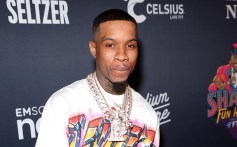
Trending on Billboard Megan Thee Stallion told a jury that she experienced severe depression amid a torrent of online hate from those who doubt that Tory Lanez shot her in 2020. The female rap star (Megan Pete) took the witness stand on Thursday (Nov. 20) in her defamation trial against Milagro Gramz (Milagro Cooper), a […]
Trending on Billboard
Fugees rapper Pras Michel was sentenced Thursday (Nov. 20) to 14 years in prison following his conviction on illegal foreign lobbying and conspiracy charges.
The rapper, who rose to fame alongside his bandmates Lauryn Hill and Wyclef Jean, was found guilty in 2023 on federal accusations that he orchestrated a “foreign influence campaign” to get the U.S. to drop an investigation into fugitive Malaysian financier Jho Low.
Related
At a hearing Thursday in D.C. federal court, Judge Colleen Kollar-Kotelly sentenced Michel to 14 years in prison, followed by three years’ probation. He was already ordered last month to forfeit a whopping $64 million allegedly linked to the scheme.
In an exclusive statement to Billboard, Michel’s spokeswoman Erica Dumas said: “Pras has spent his career breaking barriers and defying expectations. While today marks a difficult moment, it is not the end of his story or his legacy. He is profoundly grateful for the continued support of those who believe in him as he prepares for what lies ahead.”
Prosecutors had sought a “severe” sentence for a man who they said had “betrayed his country for money.” In court filings, they said that an average sentence for others convicted of a similar-sized financial scheme had been more than two decades: “The Court’s sentence should reflect the seriousness of Michel’s offenses,” they said.
Michel’s attorneys, on the other hand, had called for a far lighter sentence of only 36 months. They said the government was seeking a type of sentence “typically reserved for terrorists who murder innocents and the heads of the largest Mexican drug cartels.”
Related
Michel will surrender to authorities on Jan. 27.
Composed of Hill, Jean and Michel, the Fugees rose to fame in the 1990s with hits like “Killing Me Softly,” “Ready or Not” and “Fu-Gee-La.” After splitting up in 1998, the three each had successful solo careers and mostly stayed separate until recent years, during which they’ve attempted multiple reunion tours.
In 2019, Michel was hit with sweeping federal criminal charges over accusations that he funneled money from Low, the mastermind of the billion-dollar 1MDB embezzlement scheme, to a lobbying campaign aimed at getting the first Trump administration to drop its investigation into the disgraced financier. He was also accused of secretly funneling Low’s money to Barack Obama’s 2012 presidential campaign, and of later trying to influence an extradition case on behalf of China.
In April 2023, following a trial that included testimony from actor Leonardo DiCaprio and former U.S. Attorney General Jeff Sessions, Michel was convicted on 10 counts, including conspiracy to defraud the U.S. government.
Michel later sought a re-trial on the grounds that his ex-lawyer, David Kenner, botched his defense by using an unproven artificial intelligence (AI) tool to craft closing arguments. That motion was later denied, though Kenner eventually pleaded guilty to a criminal contempt charge over allegations that he leaked grand jury materials to reporters ahead of the trial.
Michel’s attorneys will now launch his appeal of both the sentence and the underlying convictions; such appeals can take months or years, and typically face an uphill climb to reverse a conviction.
Trending on Billboard
An appeal filed by Making the Band contestant Sara Rivers aimed at reviving her $60 million sexual assault lawsuit against Sean “Diddy” Combs has been abruptly dismissed — a move that came after her lawyers failed to file basic court forms.
Rivers sued Combs earlier this year over claims that he harassed and groped her during the filming of the 2000s MTV reality show, but a federal judge ruled this summer that she’d waited far too long to sue. After that ruling, she quickly filed an appeal aimed at overturning it.
Related
But last month, according to court records reviewed by Billboard, the appeals court dismissed Rivers’ case. The reason? Her attorneys failed to meet a required deadline to file basic procedural forms that are filed at the start of any appeal.
That failure means that the earlier ruling dismissing Rivers’ case is now final, and most of her case is now closed. A small element of the case has not yet been fully dismissed, but the majority of her case was dismissed permanently.
Ariel Mitchell, the attorney who represents Rivers and failed to make the required filings, did not immediately return a request for comment on Thursday (Nov. 20). Reps for Combs also did not return a request for comment.
Rivers, who became a member of hip-hop group Da Band, sued Combs in February, claiming he had cornered her in a recording studio and “ran his left hand across her breasts.” She also claimed that he later blackballed her in the music industry in retaliation for rebuffing his advances.
Related
The case was one of dozens of civil lawsuits filed against Combs over the past two years alongside his blockbuster federal criminal case. Following a two-month trial, Combs was acquitted last month on the most serious charges of racketeering (RICO) and sex-trafficking in that case, though he was found guilty on two lesser counts of interstate prostitution. Last month, he was sentenced to four years in prison.
In August, Judge Jed Rakoff ruled that Rivers had filed her case far too late. He said allegations centered in the 2000s were clearly filed years after the statutes of limitations had expired.
“It is important to remember the many positive purposes served by statutes of limitations,” the judge wrote. “They promote justice by preventing surprises through plaintiffs’ revival of claims that have been allowed to slumber until evidence has been lost, memories have faded, and witnesses have disappeared.”
Judge Rakoff said Rivers had invoked a “hodgepodge” of arguments for why the time limits should be lifted in her case, including that she was afraid of retaliation from Combs and his business empire. But the judge said that wasn’t enough.
Related
“While Rivers does allege that she experienced a general fear of retaliation preventing her from speaking out against Combs, general claims of psychological stress cannot give rise to duress tolling,” the judge said, referring to the technical term for such a delay.
Rivers quickly appealed, setting the stage for a lengthy battle before the U.S. Court of Appeals for the Second Circuit. But after making her initial case filings, Mitchell never filed another document in the case — even after being warned to do so.
In early October, the court warned her that failure to submit Form C and Form D (a basic case synopsis and disclosure regarding transcripts, respectively) would result in the case being dismissed in two weeks. Mitchell never filed those forms, and the case was duly dismissed on Oct. 17.
Mitchell is the same attorney that Combs is currently suing for defamation over allegations raised by Courtney Burgess, another one of her clients. In TV interviews, Burgess claimed to have videos showing Combs in sexual encounters with celebrities — a claim Mitchell later echoed. Combs says such videos don’t exist and that he was defamed by Mitchell and Burgess’ “outlandish claims.” That case is pending.

 State Champ Radio
State Champ Radio 